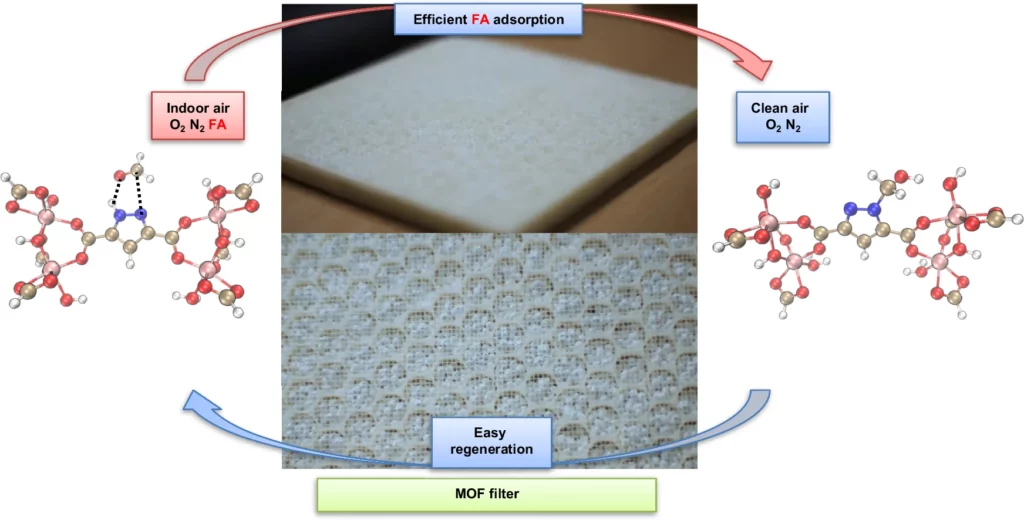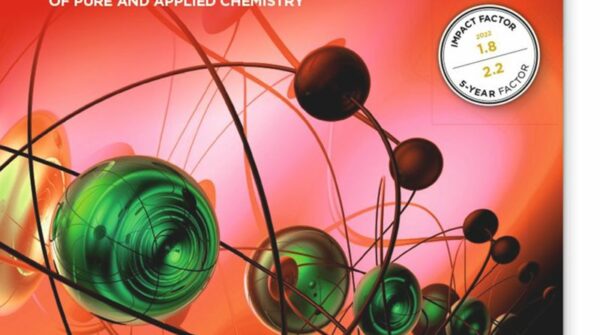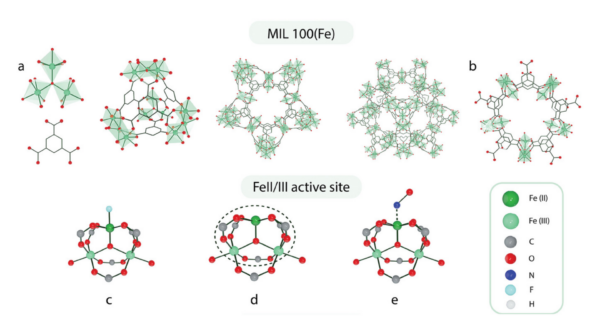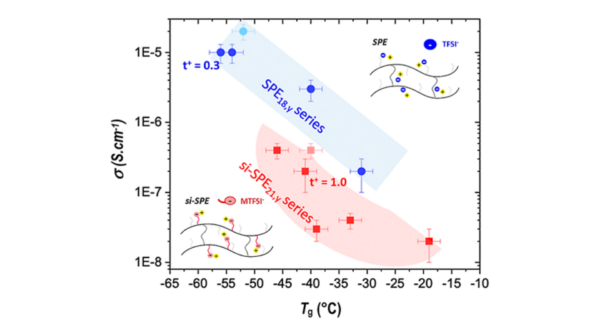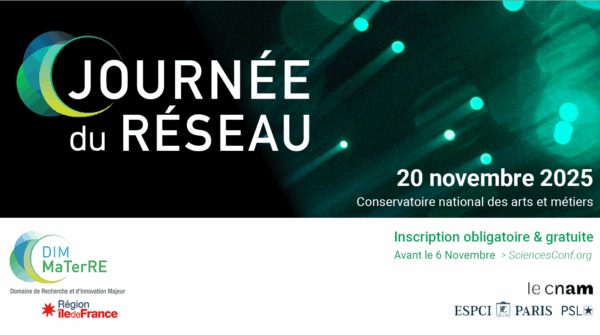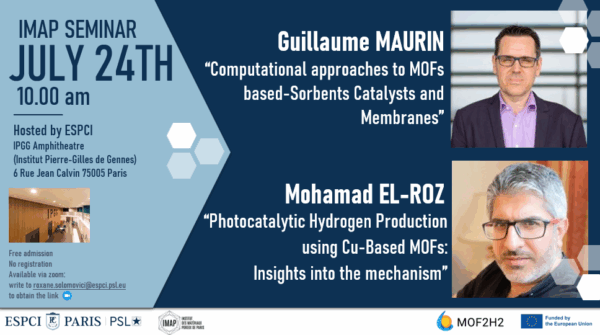Research axes :
Production, upgrading and management of strategic gases
Metal-organic frameworks based on pyrazolates for the selective and efficient capture of formaldehyde
An article published in Nature Communications and co-written by Nicolas Sadovnik, Pengbo Lyu, Farid Nouar, Mégane Muschi, Menghao Qin, Guillaume Maurin, Christian Serre and Marco Daturi
Abstract
Indoor air pollution is one of the major threads in developed countries, notably due to high concentrations of formaldehyde, a harmful molecule difficult to eliminate. Addressing this purification challenge while adhering to the principles of sustainable development requires the use of innovative, advanced sustainable materials. Here we show that by combining state-of-the-art spectroscopic techniques with density-functional theory molecular simulations, we have developed an advantageous mild chemisorption synergistic mechanism using porous metal (III or IV) pyrazole- di-carboxylate based metal-organic framework (MOF) to trap formaldehyde in a reversible manner, without incurring significant energy penalties for regeneration. A straightforward, environmentally friendly, and scalable synthesis protocol was established for the porous, water-stable aluminum pyrazole dicarboxylate known as Al-3.5-PDA or MOF-303, capable of functioning as a highly efficient and reusable filter. It demonstrates selectivity and high storage capacity for formaldehyde under conditions typical of severe indoor use, such as in housing or vehicle cockpits, including varying VOC mixtures and concentrations, humidity, and temperature, without any accidental release. Furthermore, we have successfully regenerated this sorbent using a simple domestic protocol, ensuring the material reusability for at least 10 cycles.


